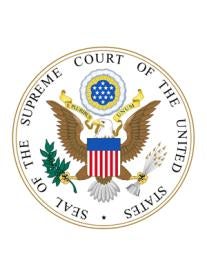On Tuesday, March 24, 2015, the U.S. Supreme Court issued a landmark securities decision in Omnicare, Inc. v. Laborers District Council Construction Industry Pension Fund, finding that incorrect statements of opinion provided in a registration statement give rise to liability under Section 11 of the Securities Act of 1933, 15 U.S.C. § 77k (“Section 11”), if the stated opinion is materially untrue and subjectively disbelieved by the speaker, and, in instances where omission liability is alleged, if the issuer did not have a reasonable basis for the opinion. The decision provides a welcome clarification of the standard of liability for statements of opinion under Section 11 in light of a previous circuit split and ensures that securities plaintiffs will be limited in their ability to, as the Supreme Court put it, “Monday morning quarterback an issuer’s opinions” if those opinions ultimately turn out to be wrong.
Background
The Securities Act of 1933 requires companies to file a registration statement containing specified information, which may include representations of fact or opinion, about the company and the securities offered in connection with public offerings. Section 11 of the Securities Act of 1933 provides that a purchaser of securities may sue, among others, the persons signing the registration statement if the statement “contained an untrue statement of a material fact” or if it “omitted to state a material fact required to be stated therein or necessary to make the statements therein not misleading.” See 15 U.S.C. § 77k(a). Unlike Section 10(b) of the Securities Exchange Act of 1934 and Rule 10b-5 promulgated thereunder, which also target securities fraud, Section 11 does not contain a requirement that a plaintiff allege and prove that the issuer acted with scienter, a mental state embracing intent to deceive, manipulate or defraud.
The instant case arose from a registration statement filed by Omnicare, a pharmacy services company for residents of nursing homes, in connection with a December 2005 public stock offering, in which Omnicare stated that it believed its contracts with certain healthcare providers and pharmaceutical manufacturers complied with “applicable state and federal laws.” Omnicare was subsequently sued by the government regarding alleged violations of the anti-kickback laws related to Omnicare’s receipt of payments from drug manufacturers, and Omnicare ultimately settled the claims. Pension funds (the “Funds”) that purchased Omnicare stock in connection with the 2005 offering also sued and alleged that Omnicare’s statements in its registration statement that it was in compliance with the law—or its failure to disclose contrary facts—were materially false or misleading under Section 11, and that Omnicare’s officers and directors did not have a reasonable basis for the opinion offered.
The district court dismissed the Funds’ suit, finding that they had failed to allege that Omnicare’s officers knew that Omnicare was violating the law. The Sixth Circuit reversed, finding that Section 11—which provides for strict liability—does not require a plaintiff to allege that a speaker did not subjectively believe the statement of opinion to be true. Rather, the Sixth Circuit found that a plaintiff may adequately plead a claim under Section 11 simply by alleging that the statement of opinion in question was “objectively false.” However, in so holding, the Sixth Circuit acknowledged that it was creating a conflict with prior decisions by the Second and Ninth Circuits, which had previously held, in reliance on Virginia Bankshares, Inc. v. Sandberg, 501 U.S. 1083 (1991), a proxy fraud case, that liability under Section 11 arises only where a statement of opinion was both objectively false and disbelieved by the defendant at the time it was expressed. The Supreme Court granted certiorari to consider the standard of liability for statements of opinion under Section 11.
The Court’s Decision: Drawing a Line Between Misstatements and Omissions, Facts and Opinions
The Court, in an opinion delivered by Justice Kagan, reversed the Sixth Circuit. In so doing, the Court made several important distinctions, both between misstatements and omissions and between fact and opinion. With regard to affirmative misstatements, the Court rejected the argument propounded by the Funds that a statement of belief makes an implicit assertion about the truth of the belief or about its subject matter, finding that argument to improperly conflate opinion and fact. Stating that “a statement of fact (‘the coffee is hot’) expresses certainty about a thing, whereas a statement of opinion (‘I think the coffee is hot’) does not,” the Court found that Congress effectively incorporated the distinction between fact and opinion in Section 11 by explicitly providing liability only for “‘untrue statement[s] of . . . fact.’” The Court found, however, every statement of belief explicitly includes an affirmation of the speaker’s state of mind: “that the speaker actually holds the stated belief.”
Ultimately, the Court held that liability under Section 11’s false statement provision arises (assuming materiality) only if the speaker did not hold the belief that he or she professed and also if the supporting facts in the expressed opinion were untrue. (Notably, in a footnote, the Court explained that if an opinion subjectively believed to be false turned out (“surprise!”) to be true, no liability would arise under Section 11.) Thus, because the Funds failed to allege that the opinions expressed in Omnicare’s registration statement were not honestly held, the Court found that their complaint insufficiently pled a claim under a factual misstatement theory of Section 11.
With regard to omission liability under Section 11, the Court found that a statement of opinion is not misleading just because external, omitted facts show the opinion to be incorrect. The Court reasoned that reasonable investors view the statements “we believe X is true” and “X is true” differently in the context of a carefully-worded registration statement, and would not perceive statements of opinion as factual guarantees. But the Court noted that, in some circumstances, a reasonable investor would understand “an opinion statement to convey facts about how the speaker has formed the opinion,” including about the speaker’s reasonable investigation of the underlying facts. (As Justice Breyer stated during oral argument, “A museum expert on an archaeological mission says, ‘It is my opinion that those bones in that mountain are of a Diplodocus and not a Trisopterus.’ Now wouldn’t you have thought that at least he’d looked into it, that at least he’d seen the bones?”)
Drawing on principles of tort liability for misrepresentation, the Supreme Court stated that Section 11 imposes liability for omissions of material facts about “the issuer’s inquiry into or knowledge concerning a statement of opinion,” if the omitted facts “conflict with what a reasonable investor would take from the statement itself.” Recognizing that the existence of some facts cutting against the opinion is, on its own, insufficient to establish liability because a reasonable investor does not expect that “every fact” known to the issuer supports its opinion, the Court remanded the case to the lower courts to consider whether the Funds’ complaint adequately alleged (i) that facts were omitted from Omnicare’s registration statement, and (ii) that those facts were material, and to consider (iii) whether the opinion was misleading because Omnicare lacked the basis for its statement that a reasonable investor would expect.
Conclusion
Aside from announcing the standard for liability under Section 11 for statements of opinion, the Omnicare decision is significant for issuers—and those who sign registration statements—for several reasons. As the Supreme Court explicitly acknowledged, its decision sharply curtails the extent to which securities plaintiffs can assert liability for statements of opinion made by an issuer that, with the benefit of hindsight, turn out to be simply incorrect. The Court also acknowledged, however, issuers do not have “virtual carte blanche to assert opinions in registration statements free from worry.” The standard announced by the Court is still subject to a considerable number of contextual considerations. For example, when issuers state narrow opinions that are based on specific facts (the example given by the Court was “I believe we have 1.3 million TVs in our warehouse” versus “I believe we have enough supply on hand to meet demand”), the process by which an issuer arrived at that opinion may be subject to heightened scrutiny.
Toward the end of its opinion in Omnicare, the Supreme Court expressed its belief that its decision would not “chill” issuers from asserting helpful statements of opinion regarding their business in their registration statements. Time will tell.




 i
i


